Chapter 8
Global Stratification and Inequality
By Boundless
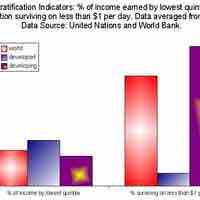
Global stratification refers to the hierarchical arrangement of individuals and groups in societies around the world.
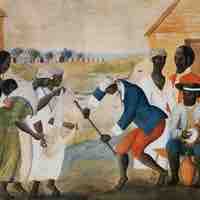
Slavery is a system in which people are bought and sold as property, forced to work, or held in captivity against their will.
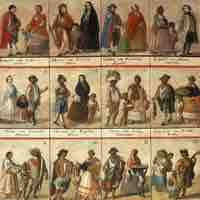
Caste systems are closed social stratification systems in which people inherit their position and experience little mobility.

Social class refers to the grouping of individuals in a stratified social hierarchy, usually based on wealth, education, and occupation.

Along with economic class and race, society is stratified by gender, with women often holding a lower social position than men.
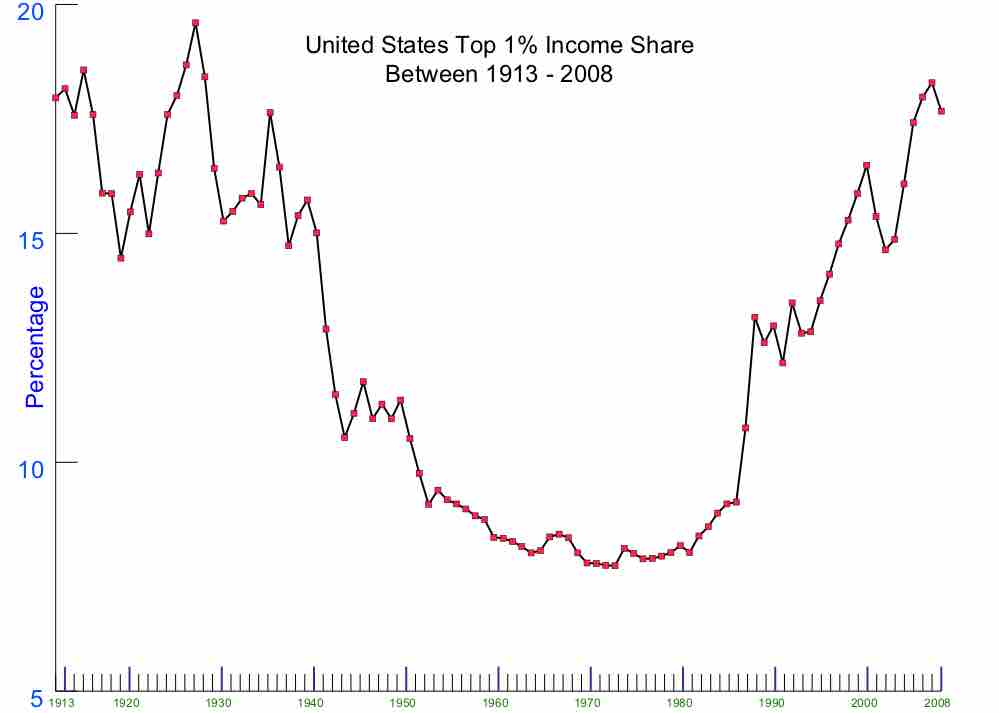
Stratification results in inequality when resources, opportunities, and privileges are distributed based on position in social hierarchy.
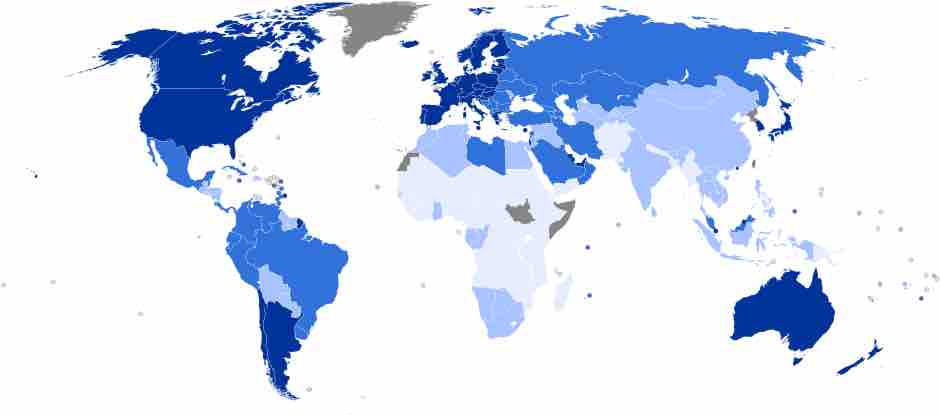
Industrialized countries have greater levels of wealth and economic development than less-industrialized countries.
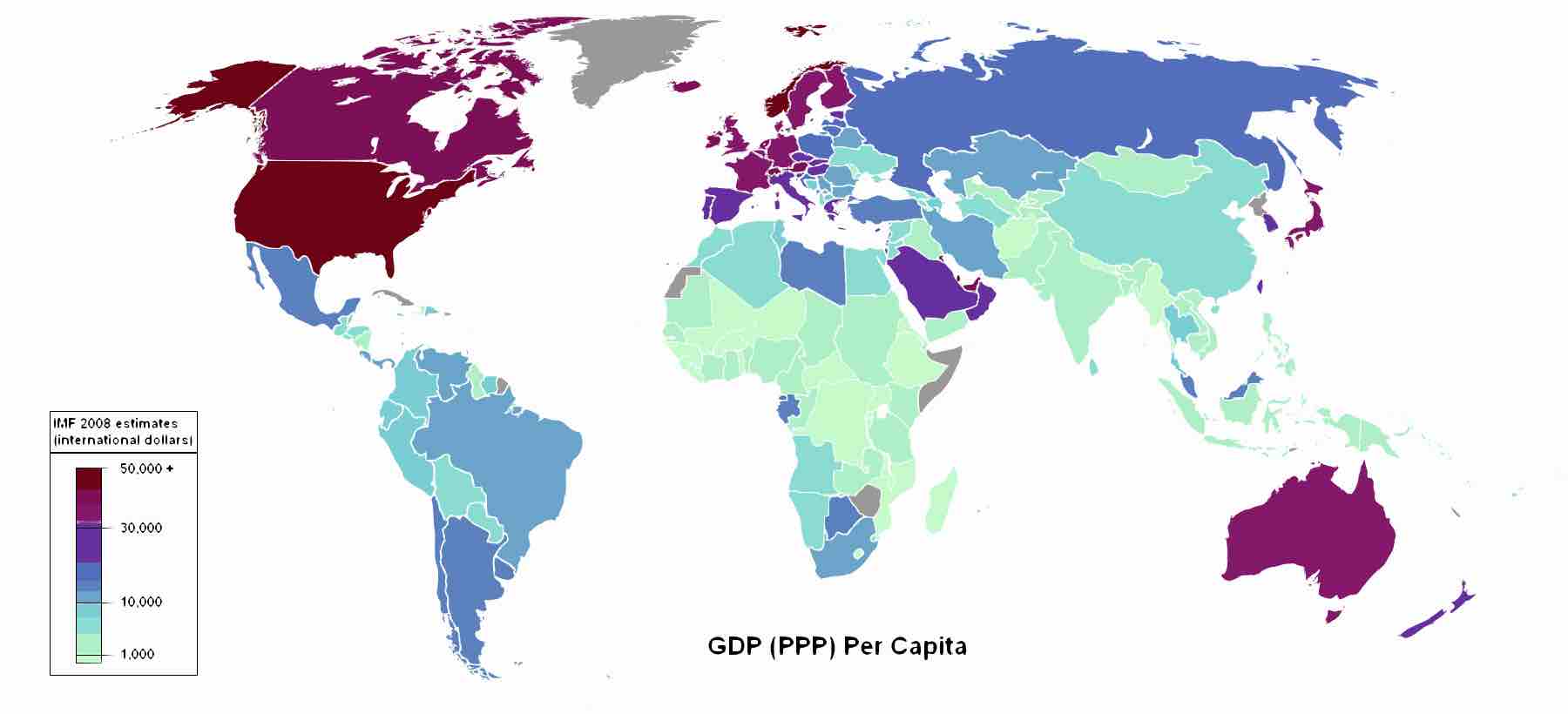
Industrializing countries have low standards of living, undeveloped industry, and low Human Development Indices (HDIs).

The world's least industrialized countries have low income, few human resources, and are economically vulnerable.
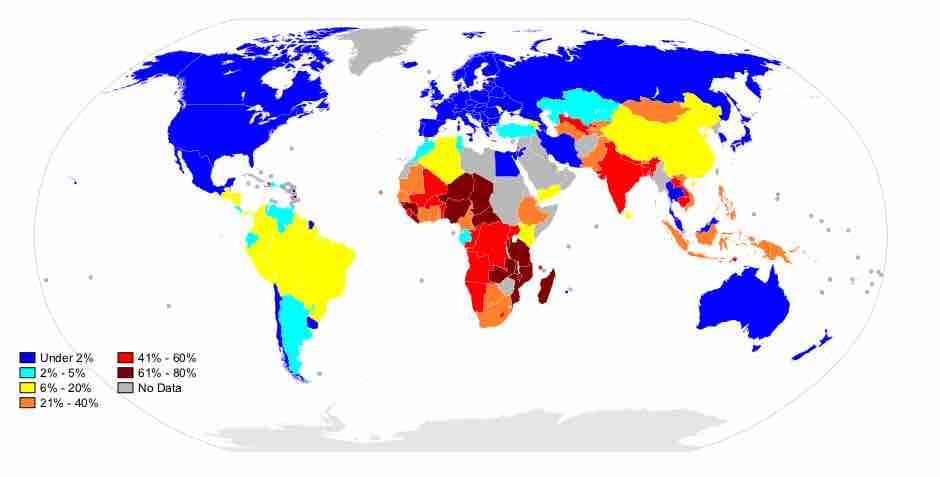
There is a wide gap between the wealth of the world's richest countries and its poorest.

Colonialism is the establishment, maintenance, acquisition, and expansion of colonies in one territory by people from another territory.

A multinational corporation (MNC) is a business enterprise that manages production or delivers services in more than one country.

Poverty is the condition of not having access to material resources, income, or wealth.
Modernization deals with social change from agrarian societies to industrial ones, with new technologies playing an important role.

World health research considers global patterns of interaction between people, products, money and information as they affect health trends.
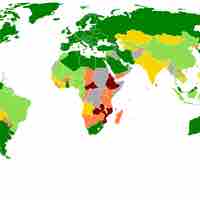
Those with weak support structures are more vulnerable to hunger and starvation than those with strong family networks.

Childhood mortality is high in developing countries where malnutrition, infectious diseases, and unsanitary conditions are widespread.
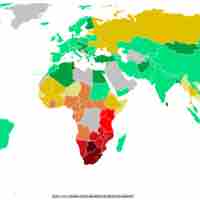
HIV/AIDS results in high infection and mortality rates amidst inadequate distribution of preventative information and treatment.
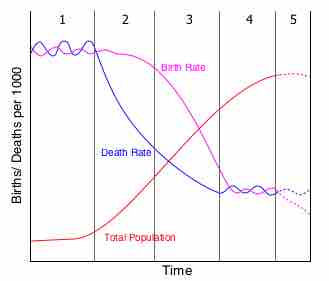
The world population has been growing continuously since the 14th century, but the growth rate has been decreasing in the last few decades.

On average, global life expectancies have been increasing and birth rates declining, resulting in global aging.
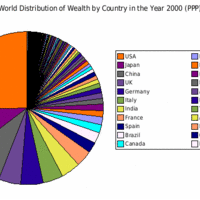
The distribution of wealth and income reveals inequalities among and within countries and the ways in which wealth is redistributed.
Social mobility is the extent to which individuals can move between social positions, either in their lifetime or between generations.

Mexico's rapid economic changes have led to huge gains in GDP, but have caused social problems such as stratification and inequality.

Mexican society still shows traces of the racial and ethnic caste system that was instituted by the Spanish during the colonial period.

In spite of purported economic growth, both women and men in Mexico have to deal with social stratification, poverty, and unemployment.

From a functionalist point of view, inequality plays a role in holding society together and encouraging efficiency.

Conflict theory of stratification holds that inequality is harmful to society because it creates a fixed system of winners and losers.

The interactionist perspective on social inequality focuses on the way that micro-interactions maintain structural inequality.

In Lenski's view, inequality is a natural product of societal development.

In the Marxist perspective, social stratification is created by unequal property relations, or unequal access to the means of production.

Max Weber formed a three-component theory of stratification in which social difference is determined by class, status, and power.
Market-oriented theories of inequality argue that supply and demand will regulate prices and wages and stabilize inequality.
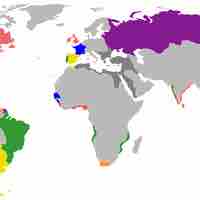
Dependency theory states that colonialism and neocolonialism have created unequal economic relations between poor and wealthy countries.
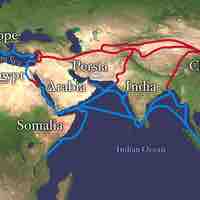
World Systems Theory posits that there is a world economic system in which some countries benefit while others are exploited.

According to state-centered theories of inequality, the government should regulate the distribution of resources to protect workers.

Social theorists think differently about global inequality based on their sociological perspective.